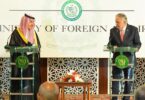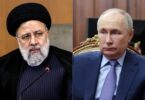F.P. Report
ISLAMABAD: Pakistan on Tuesday launched its national counter-terrorism declaring Jihad (Islamic holy war) as the prerogative of state only and calling suicide attacks ‘haram’ (forbidden) in the light of Holy Quran and Sunnah.
The narrative ‘Paigham-e-Pakistan’ that comprises a 22-point Fatwa (religious decree), inked by over 1800 religious scholars of all schools of thought hailing from across the country rejects terrorism, extremism, sectarian hatred and use of force to impose Shariah as a “rebellion” against the state.
The national narrative launched by President Mamnoon Hussain at a ceremony here at the President House attended by ministers, religious scholars, vice chancellors of universities and diplomats , is the culmination of efforts by the Islamic Re-search Institute of the Inter-national Islamic University.
The document is based on the decree of religious scholars from all schools of thoughts in the country and is in accordance with the injunctions of the Holy Quran, the Sunnah of the Prophet Mohammad (Peace Be Upon Him) and the Constitution of Pakistan.
“Those, who are conducting, facilitating, financing and promoting such heinous acts, are rebels and the State of Pakistan has legitimate authority to take all possible measures against them,” according to the document.
The ‘Paigham-e-Pakistan’ declares that Jihad involving physical combat and waging war were the prerogative of the state, and no individual or group has the authority to declare and wage Jihad.
“Such initiatives of an individual or group shall be deemed interference in the state authority, and such actions shall be considered as acts of rebellion against the state and according to Islamic teachings is a heinous crime punishable under ta’zir.”
It also points out that sectarian hatred, armed sectarian conflict and imposing one’s ideology on others by force is in clear violation of the injunctions of the Shariah and are a “disorder on earth”.
The Fatwa states that the core objective of all educational institutions in Pakistan is enlightenment, schooling and character building and th-ese must not impart any hostile military education, training, hatred, extremism and violence.
The national narrative reminds all Pakistani citizens that they are bound to protect the national interests as top priority.
“Damaging public unity and national interests are also forbidden in light of Holy Quran and Sunnah. Renunciation and breach of national interests is to be taken as high treason and therefore shall be dealt as per the Islamic injunctions.”
The document strongly supports the military operations initiated to strengthen the security and stability in Pakistan. It declares as forbidden the use of force to impose ‘Shariah’ in Pakistan, armed struggle against the Pakistani state and all other forms of terrorist activities.
“All such actions are considered as rebellion against the state, benefitting the enemies of Islam and Pakistan.”
The document states that the land of Pakistan is a sacred trust from God.
“Every inch of it is a great blessing from Almighty. Therefore, the land of Pakistan at no time shall be allowed to be used for the propagation of any kind of terrorism,” the document states and bars any type of intellectual and practical training of terrorism, terrorists, their recruitment and conducting of such activities in Pakistan and other countries.
The Fatwa categorically mentions the dignified status given to the women and says that Islam protects their rights and points to the last sermon of the Holy Prophet Muhammad (Peace Be Upon Him). It states that the women have the right to vote, education and employment, and to destroy their education institutions, attack on female students and educationists is contrary to human values, Islamic teachings and the law of the land.
It points out that honour killing, marriage with Quran, exchange marriage and violation of other women rights is strictly prohibited as per the injunctions of Islam.
The Fatwa discourages all forms of illegal use of loudspeaker, calls for strict legal action against hate speeches, delivered from the platform of mosque, and demands that polemical discussion on religious topics is reprehensible and be declared cognizable crime. The unanimous document states that non-Muslims living in Pakistan enjoy all such civil and legal rights for the protection of their life, property and dignity that their fellow Muslims avail, within the bounds of the law and Constitution. The non-Muslim citizens of Pakistan have full right to worship in their places of worship and pursue their religious celebrations as per the teachings of their religions, it adds. The document while allowing all schools of thoughts to propagate their doctrines, beliefs and juristic ideologies as per the Shar’iah, however makes it clear that no one is permitted to speak or write against any person, or other schools of thought using any insolence, hatred or baseless allegations.
The document has been prepared with the assistance and support of the academia from Pakistani universities, in cooperation with the Wafaq-ul-Madaris al-Arabiyyah, Tanzim-ul_Ma-daris Ahl-e-Sunnat, Wafaq-ul-Madaris al-Salfiyyah, Wa-faq-ul-Madaris al-Shi’ah and Rabitat-ul-Madaris Pakistan. Also eminent religious scholars from Dar-ul-Uloom Kar-achi, Dar-ul-Uloom Muham-madiah Ghausia Bhera Sh-arif, Jamia Binoria Karachi, Jamiat al-Muntazar Lahore, Jamia Ash-rafia Lahore, Jam-ia Haqqania Akora Khattak, Jamia Muha-mmadiah Islam-abad and Jamia Faridiah Islamabad.
The Paigham-e-Pakistan is the outcome of over a several months long process that identifies the problems being faced by the state and provides solutions to devise a strategy to achieve the goals of the Objectives Resolution.






